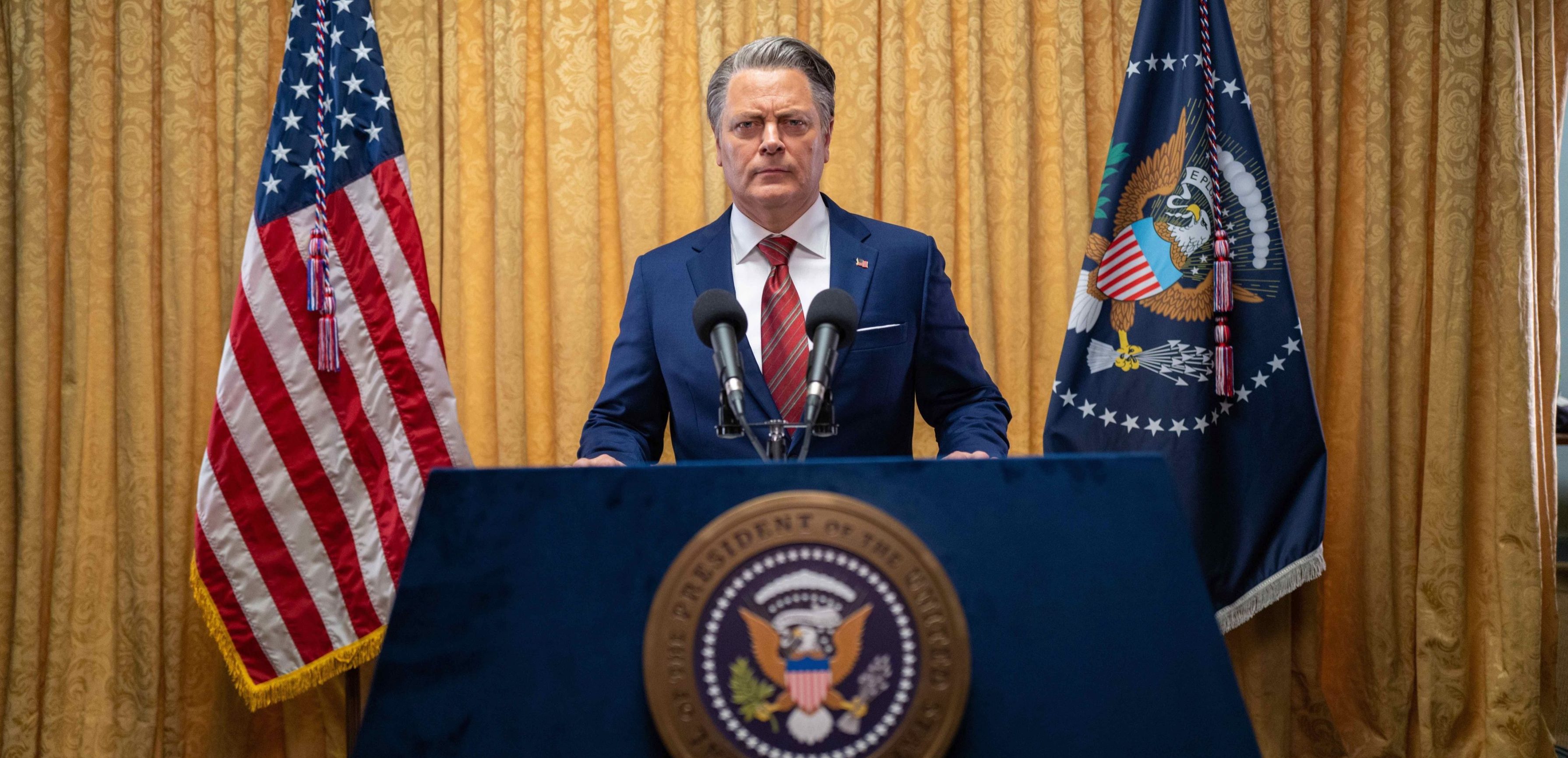Even though Alex Garland’s ‘Civil War’ revolves around an armed conflict between the Western Forces and the United States government, the dystopian thriller film rarely gets into its specifics. The outright gravity of the war is gradually unveiled, after taking enough time to establish the four journalists who travel from New York to Washington D.C. to cover the same. The movie then concludes without delving deep into the war and its backstory. However, Garland’s narrative leaves enough breadcrumbs for the audience to complete a puzzle and comprehend the motives behind the Western Forces’ attacks. Such an exploration also helps us understand the nuances of the filmmaker’s treatment, which makes the dystopian thriller a standout work among other works in the genre!
The War Against Fascism
‘Civil War’ begins with Nick Offerman’s President of the United States confidently addressing his nation about defeating the insurgents, who are mainly based in California and Texas, and offering the two states an opportunity to reunite with the union. The politician’s address may puzzle the viewers from scene one, especially with regard to the identification of the “bad guy” in the narrative. Since the earlier portions of the film don’t really explain the Western Forces’ intentions and motives, one can’t even be blamed for likely wondering whether they are the antagonists. However, the Western Forces have a valid cause to fight against the President and his government.

Offerman’s President provoked the rest of the country by securing a third term in office, which displays his hunger for authority. The twenty-second amendment to the country’s constitution makes it clear that an individual cannot serve more than two terms as the President. Offerman’s unnamed character not only dismissed this provision but also put an end to the operation of the FBI to eliminate threats from within his government. He then showed his power-hungry fascist nature by turning against his own citizens. The members of the Western Forces must have united against the President when innocent lives started to get killed on the streets.
Even though there are concrete motives behind the Western Forces’ attacks, Alex Garland chose to hide them in the film’s narrative rather than position them as its foundation. The primary reason behind the filmmaker’s treatment is not to side with any particular faction. Garland’s protagonists are neutral or unbiased when it comes to the civil war, and he knew that explaining the motives extensively would lead the viewers to a particular side. “There’s a lot of films that tell everything to everyone and make everything completely digestible. I’m not particularly interested in doing it because it feels oppositional to engagement. ‘Left vs. right’ closes down the conversation. That is the problem with polarization,” the filmmaker told TIME.

Even though Garland set his film in the United States, he didn’t even want his narrative to be limited to the conflicts in the country. That’s the reason why the Western Forces and the United States government are not Republicans and Democrats, respectively, or vice versa. To make this work, he made the Western Forces, which fights fascism, a union of the Democratic California and Republican Texas. “I do realize their differences. But what would be so important as a threat that the polarized politics between Texas and California was suddenly seen as less important than the threat?” Garland told The New York Times about the alliance.
With Republicans and Democrats out of the picture, ‘Civil War’ becomes a film about fascism and polarization. That’s the reason why the revealed motives behind the war are connected only to a power-craving fascist without any known political affiliations. By limiting these motives, Garland made his movie universal in nature. “Then it would be an issue that only related to this country [the US], but it’s not. You can see it right now playing out in Israel. You can see it happening in Asia, in South America, Europe; you can see it in my own country [the UK],” the filmmaker added to The New York Times about why he deliberately left out specifics about the war.
Read More: Movies Like Civil War


You must be logged in to post a comment.